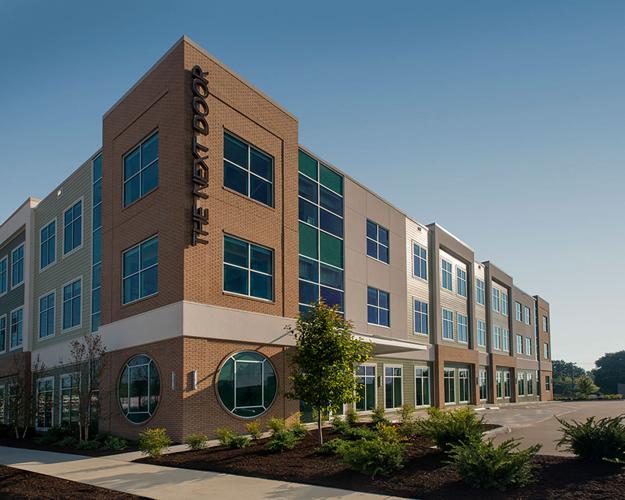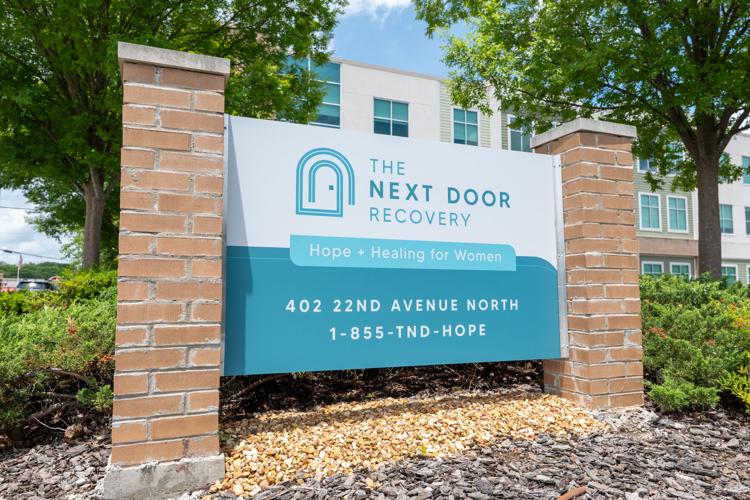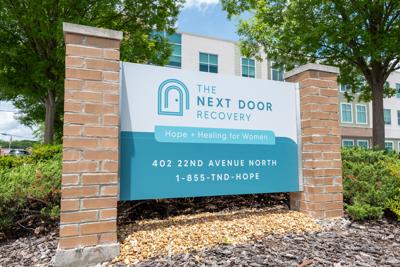Finding treatment for opioid use disorder during pregnancy can be a challenge. Not all programs offer services for pregnant people.
“They often don’t take pregnant women, or they don’t know if they take pregnant women,” says Kimberly Lovell, director of the Firefly program at Vanderbilt University Medical Center. “So a pregnant woman will call, and [an opioid recovery program will] say, ‘Oh, we’re not sure if we can get you in.’ There are a lot of issues with stigma. There are a lot of legal fears. So for a variety of reasons, it is more difficult for pregnant women to access services, and there are not a lot of places where they can get everything under one roof.”
Firefly was introduced in 2011 to address just that, offering an outpatient treatment program for pregnant women through pregnancy and at least their first year postpartum.
The program has been able to expand following the award of $5 million over three years from the Tennessee Opioid Abatement Council. Those funds began hitting in summer 2024. Firefly is expanding to rural sites in the Vanderbilt Health network, and has hired peer recovery specialists and social workers who travel to meet patients in rural areas. Firefly has also hired a community partnerships manager to connect clients to other things they may need, like food banks or housing. The group also hired a data manager to analyze the outcomes and effectiveness of the program.
Belmont, Meharry, Metro, VUMC among those to receive millions after lawsuits with drug distributors
In 2024, the Tennessee Opioid Abatement Council awarded $81 million across the state. The council is set to receive more than $600 million in the next 18 years from various lawsuits against companies that made, distributed or sold opioid painkillers, including Purdue Pharma, Johnson & Johnson and Walmart. (Davidson County was awarded its own set of funds to distribute.)
Already, the funds are changing the game for Firefly and another long-running local program, The Next Door Recovery. The faith-based program offers inpatient treatment for up to 60 women and also offers medically monitored detox and outpatient services. Some of those patients are pregnant too.
A $1.1 million award over a two-year span has allowed The Next Door Recovery to extend its hours. This meant an additional 174 intakes in the back half of 2024 and already an additional 166 women reached this year during what would have previously been “after hours.” Now open seven days a week until 11 p.m., The Next Door Recovery hopes to eventually reach 24/7 availability.

The Next Door Recovery
Those in the addiction and recovery space know it’s important to strike while the iron is hot.
“We really want to capitalize on [a patient’s] readiness to change — and that is a clinical term,” says Amanda Dunlap, the clinical executive director of The Next Door Recovery. “That is very important to us, because that readiness shifts very quickly. Instead of scheduling out to next week, we’re able to bring them in the same day when she’s ready and willing. We try not to even let them off the phone.”
According to new data from D.C.-based health consulting firm Avalere, Tennessee is one of the hardest-hit states in terms of costs of opioid use disorder — taking into account costs of treatment, insurance and criminal justice expenses. Effective treatment, like medication-assisted treatment, can defray those costs.
Around 90 percent of Firefly patients and 75 percent of The Next Door Recovery patients are Medicaid recipients. The opioid abatement funds, which are more flexible than other grants, are making a difference. Medicaid reimbursements aren’t high, and grants can be sporadic, Dunlap says.
“There isn’t an overflow of funds to be able to get something off the ground, and these funds have enabled us to do that,” she says.
Pregnancy can be a double-edged sword when it comes to seeking treatment for opioid use disorder, providers tell the Scene.
“There’s a fear of change because of the outward stigma that comes with that,” Dunlap says. “If I go to treatment, that is me admitting that I’ve been using while I’m pregnant and, ‘Are they going to take my baby right away?’”
On the other hand, there’s motivation to get healthier to ensure more long-term success as a parent.
“Pregnancy is often a time when people have a really high motivation for change, and when people who wouldn’t otherwise get into recovery get into recovery, because it’s now two lives on the line, not just one,” Lovell says. “I will say that despite all of the challenges, it’s also a really beautiful opportunity.”








